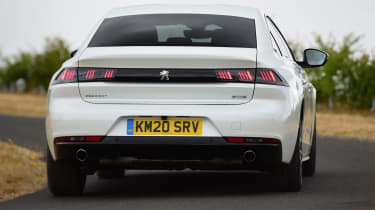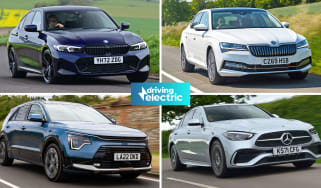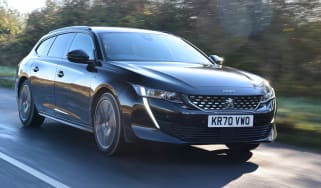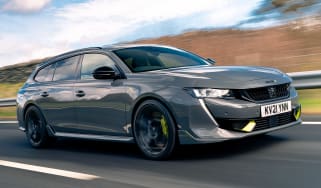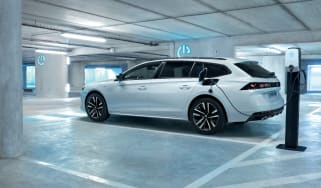Peugeot 508 Hybrid review
The Peugeot 508 plug-in hybrid executive car is a good effort, hitting all the right notes for company users – but it seems too expensive for private buyers
Pros
- Stunning looks
- Pretty well equipped
- Very low CO2 emissions
Cons
- BMW 330e better to drive
- Expensive for private buyers
- Style trumps practicality somewhat
| Car type | Electric range | Fuel economy | CO2 emissions |
|---|---|---|---|
| Plug-in hybrid | 33-39 miles | 166-235mpg | 29-33g/km |
The swoopy Peugeot 508 arrived in 2018 before gaining a plug-in hybrid variant during 2020. Thanks to lower CO2 emissions and better fuel economy than purely combustion-engined equivalents, it gets a small discount on annual road tax and promises big savings on company-car drivers’ Benefit-in-Kind (BiK) tax bill.
The 508 is one of many compact executive cars offering plug-in hybrid these days, including the BMW 330e and Volkswagen Passat GTE, as well as the Skoda Octavia iV and Superb iV. They all offer similar financial benefits, though not all are as stylish and attractive as the 508 is in the metal. Nearly all modern Peugeots, from the 208 hatchback to the 3008 SUV, cut a dash on the road, but the 508 is particularly svelte; it's guaranteed to turn heads.
The interior looks as good as the exterior, with high-tech displays and classy 'piano-key' buttons to keep you informed as to what the hybrid drivetrain is doing and let you operate its various modes. As in almost every other plug-in, these include a pure-electric mode, a full-power mode that gives you everything the engine and electric motor can muster and a charge-preservation mode that lets you to hold on to battery charge to be deployed later on in your journey – such as when you arrive in an urban area after a long motorway run.
This is a pretty good car to drive, offering the same combination of comfort and poise as the standard 508, but the big Peugeot still can't match its BMW 330e rival for outright polish and driver engagement. Still, as an alternative to the executive-saloon mainstream, the French car is a viable option.
And while the 508 Hybrid costs more to buy than its solely combustion-powered stablemates, the payoff is low running costs, including impressive fuel economy if you can keep its battery topped up. The added benefit of ultra-low company-car tax and an unlimited-mileage warranty are further strings to its bow.
But, as good as the plug-in hybrid 508 is in objective terms, its suitability for private buyers is easily brought into question. It'll suit a very specific type of user, but the high asking price and relatively low residuals will only count against it when compared to rivals from the more established premium brands.
Ultimately, you use your car mainly on frequent shorter journeys and occasionally undertake longer ones, the Peugeot 508 Hybrid is a worthy alternative to many other plug-in saloons on the market – and in 508 SW estate guise, a welcome and stylish alternative to your typical family SUV. For a more detailed look at the car, read on for the rest of our in-depth review...
